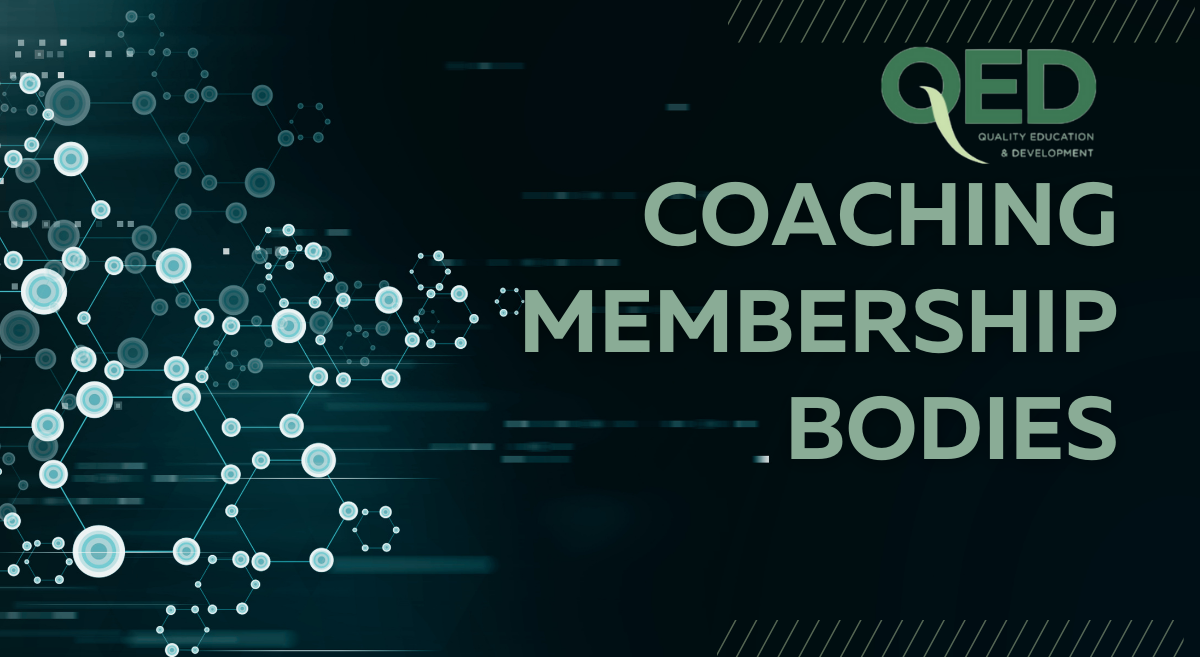Having successfully embarked on your coaching qualification, you are probably now thinking about joining a membership organisation. But why bother? If you need help weighing up your options, this post could be useful to you. We will review the benefits of becoming part of a coaching community and signpost you to a discount code if you have completed your coaching qualification with an ILM centre like ours.
Purpose
There are over 150,000 results if you type ‘coaching membership organisations’ into an internet search engine. In the UK alone there are a number of professional coaching associations that have been established to help maintain standards of coaching and promote good practice. As well as promoting best practice these organisations provide training and continuing professional development.
Coaching bodies like the Association for Coaching, European Mentoring and Coaching Council (EMCC) and the International Coaching Federation (ICF) provide a set of clear ethical guidelines that help promote the professionalism and credibility of coaches.
Membership organisations provide a forum for networking with like-minded professionals. This can include learning with others at events or volunteering. Finally, many offer accreditation routes for coaches – this means progressing through a professional pathway to achieve accreditation of current practice.
Benefits
Firstly, investing in membership in a coaching body can offer professional recognition. It shows potential clients that you have demonstrated the requisite experience or qualifications to join the institution. Many professional bodies offer a logo that you can also add to your business card or email signature, which can support credibility.
Professional bodies can be a great source of up-to-date industry news – most offer access to some kind of newsletter. Articles, research and think pieces can be accessed in support of your ongoing professional development. You might even explore volunteering to author pieces yourself.
Most institutions have regional networking and professional development events that you can attend. This can be a good way of making new contacts and keeping yourself up to date. If you are looking for volunteer experience, many also advertise vacancies on committees or boards.
Decisions-decisions
Having completed your research you then need to decide on the membership organisation that is best suited to you. You might like to consider:
-
Geography – would I prefer a global organisation versus a UK base? What might future clients prefer?
-
Access to CPD – how many free events can I access for my subscription? What is the average cost of a paid event?
-
Accreditation – is accreditation important to me? If yes, what is the process?
-
Operations – does the membership body operate not for profit or otherwise?
-
Membership base – how many members does it have? What do they say about it?
As with any investment, it’s important to weigh up the cost versus the benefits – research each membership body and talk to your peers about their recommendations before making a decision. Remember, you may be able to claim professional membership costs against tax if you are self-employed.
Think outside of the box too – what discounts do the professional bodies offer to other membership bases? For example, The Henley Centre for Coaching offers a discounted price to Association of Coaching members. The Henley Centre for Coaching offers its members free access to ten live webinars each year plus In Action guides and coaching tools.
Last but not least, a discount code
If you have completed your coaching qualification with an ILM centre like QED you can apply for membership of the European Mentoring and Coaching Council UK for a discounted price. There is a discounted price for current learners and those who have graduated within a 12-month window. More details can be found here:
European Mentoring and Coaching Council UK | ILM (i-l-m.com)
PS: Find out more about QED coaching courses: ILM Courses Sussex | In-House, Online & One to One (qedcoaching.co.uk)
Author: Clare Westbrey-Tong (Member of both Henley Centre for Coaching and EMCC UK)

